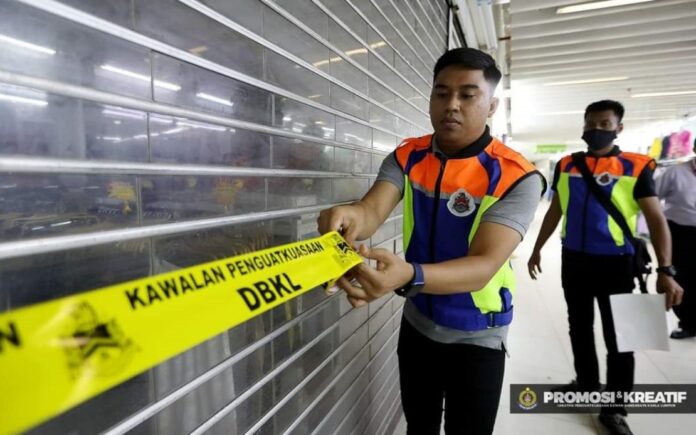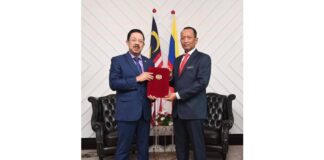KUALA LUMPUR, Oct 11 — The Kuala Lumpur City Hall (DBKL) immediately sealed 44 premises operated by foreigners in the vicinity of Jalan Kenanga, here, yesterday.
According to DBKL, the closure was made under under Section 101(1)(v) of the Local Government Act 1976 through the Ops Bersepadu (TEBAH) on Premises Operated by Foreigners Series 5 in 2023.
A total of 51 compound notices were issued involving offences related to conducting business without a license, employing foreign workers and violating licence conditions under the Trades, Businesses and Industries Licensing of the Federal Territory of Kuala Lumpur (WPKL) 2016 by-laws and the Local Government Act 1976.
“Show-cause letters will be issued directly to local premises owners, indicating the reasons for the suspension or cancellation of business licences for allowing foreigners to operate their businesses without proper authorisation,” it said in a statement today.
The integrated operation was also joined by the Royal Malaysia Police (PDRM), the Immigration Department, the National Registration Department (NRD) and the Companies Commission of Malaysia (SSM).
During the raid, authorities inspected 217 business premises engaged in selling headscarves, fabric, clothing, shoes, bags, mobile phone accessories, computer equipment, electronic cigarettes (vape) and various other activities, as well as 85 workers and business operators, focusing primarily on foreigners.
“A total of 29 foreign workers, comprising 22 from Bangladesh, Indonesia (three), Pakistan (three) and Myanmar (one), were detained by the Immigration Department for failing to provide proper identification documents under offences stated in the Immigration Act 1959/63,” he said.
SSM issued 92 compound notices for various offences and violations, including 64 notices related to the Business Registration Act 1956 and 28 notices under the Companies Act 2016 to business owners and companies.
Meanwhile, the NRD conducted 42 inspections and issued warnings to individuals or business operators regarding the use of registered or suspicious identity cards under the National Registration Act 1959.
“Similar operations would be conducted regularly at different hotspots involving businesses operated by foreigners,” he said.
















